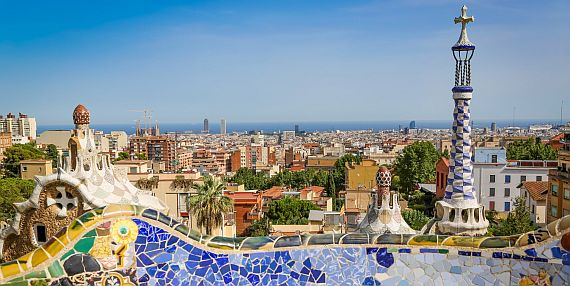
News & Stories
London. The business travel market outperformed its forecast. Expenses for conferences, meetings and company events developed better than estimated, the outlook remains optimistic for 2018. The question of hotel content is crucial for the companies booking.
Think big
Cannes. The mood at the IHIF Berlin and the MIPIM in Cannes were similar: Both investment events showed that the money is still flowing, though the question as to the duration o the boom is being asked ever more often. That across the globe the hotel industry is still planning, building, buying and selling at speed – none of this, so it was said, has anything to do with a bubble. It sounded like a mantra. One study revealed: Institutional investors are planning to invest more in the hotel industry. At the same time, the fair was once again a showroom for the next global projects, technology trends included.
Berlin. ITB Berlin 2018 recorded a five-percent increase in the number of deals compared to previous year and excellent forecasts with respect to the next few months: The international travel industry dynamically heads towards a fantastic record year. This is Messe Berlin's emotional summary of ITB 2018.
Pyeongchang. Whilst Europeans take their decision to host the Olympic Games on the back of a costs and benefit analysis – and generally reject the possibility as a result – in South Korea, very different considerations are in play: Budgets and the nature of the games are not anything like as important as the possibility of rapprochement with North Korea and the image gain that could result. Our Austria correspondent Fred Fettner attended the Games last week in Pyeongchang not only as a accredited journalist but also to provide moral support to his son, Manuel – ski jumper on the Austrian team and one of 2,920 athletes from 92 countries. He reports on his observations of the tourist infrastructure, on his experience in Austria House, on the huge sponsor presence, on the miserable camping accommodation offered at below freezing temperatures as well as on unexpected friendships and the sheer joy of the Games.
Mestre. From a traditional company, running two family-owned hotels in Jesolo and Mestre, to a structured group, backed by international funds along with an organizational framework set up to win the challenges of the global market… The case of the H.n.h. Hotels and Resorts is not really new. Especially as they wish to develop from a smaller to a bigger scale. In the Italian hospitality world, this decisive step can't really be taken for granted. One year ago, French capital allowed the company to move on. H.n.h is a white label company working with international franchise brands in its city locations but operating hotels itself at the seaside. CEO Luca Boccato has a very clear understanding of agreements and conditions.
Lisbon. New hotels and refurbished ones will increase Portugal's hotel portfolio in 2018. Half of them concern the cities of Porto and Lisbon. Higher investment costs do not stop foreign investors from competing with locals, such as Pestana.
Ibiza. Already in this summer season, it will be illegal to rent out apartments to tourists via home-sharing platforms such as Airbnb or Wimdu on Ibiza. This measure was taken to alleviate the housing shortage on the island. However, it could also backfire in the medium term.
Berlin. Germany has never been as popular a country to visit as today. 459.6 million overnight guests in 2017 – which is three percent more than in 2016 – are a new record. The boom is said to continue in 2018, however, the industry's challenges remain.
New York. The outlook for international business travel is generally optimistic. Dramatical increases for travelling are not foreseen. But in Europe – except the UK and Spain – notable increases in hotel rates are expected.
London. At last year's World Travel Market in London, overtourism partly eclipsed the big Brexit issue – particularly with respect to European city tourism. However, the experts on the discussion panels were a disappointment, as they did not have any clear answers at hand. Instead, studies and surveys tried shedding some light on the shady sides of the tourism boom. In particular, cruise ships are caught in the crossfire. The idea of making travelling an elitist commodity again is certainly the worst solution.




